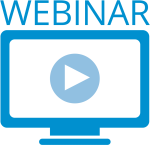Seeing, Connecting and Accelerating Transformation Systems in the Gulf of Maine
Information:

Description:
Rapid warming of the Gulf of Maine is well documented, collective response to this change is not! The recent report from the Lancet Commissions (Food in the Anthropocene: the EAT–Lancet Commission on healthy diets from sustainable food systems) report identifies the potential for the seafood sector, urging a “global transformation” of the seafood system. To enable this scale of change, we recognize that transformations-systems (T-systems) are needed to enable the scope and scale of systems change outlined in this report and many others. A T-system comprises all those initiatives nudging, shifting and disrupting the status quo in a more positive transformational direction. These efforts may operate alongside a status quo system, but T-systems are inherently focused on significant, large-scale change and innovation, compared with status quo systems’ emphasis on production and administration. T-systems require their own distinctive identity, skills, capabilities and organizing space to operate. There is now an emerging field of understanding T-systems and with it, an emerging practice of how to better visualize them through mapping and analysis. We are learning that many transformational efforts simply muddle along without coherence or guidance, with fragmented efforts going in different directions. This webinar will introduce a global working group headquartered at the recently launched New England Ocean Cluster in Portland Maine, the ten Workstreams and one that is “place-based” with a sharp focus on the Gulf of Maine. The focus for the webinar will be on the seafood sector and will invite all participants to contribute to this voyage of discovery.
The Massachusetts seafood industry--from boat to processor to distributor to consumer--is a significant asset to the quality of life and well-being of the Commonwealth of Massachusetts. For port communities, it is a centerpiece of the local economy and a source of culture and tradition. This presentation fits within the overall focus of the Gulf of Maine with an example of an analysis of the seafood system in Massachusetts, highlighting key needs and opportunities identified during a 2017 study as well as some of the steps currently being taken to address those needs and opportunities.
Speakers:
Glenn Page
President & CEO, SustainaMetrix
For over 30 years, Glenn has been working on creating pathways to transformation of our coastal communities across the globe. He did his graduate work at Johns Hopkins University in interdisciplinary marine science and has been working at the interface of science, policy and practice. As restoration ecologist by training, he “grew up” designing and building natural systems (i.e. dunes, rivers, wetlands and forests), focusing on ecosystem function, equivalency and valuation. Currently, he is the President/CEO of SustainaMetrix, which is all about “Navigating in the Anthropocene” as Glenn leads a team of interdisciplinary experts who brings innovation, evaluation and systems thinking to complex, messy, cross-scale, wicked challenges of our time. A major contribution has been his work in forming the Transformations Systems Mapping & Analysis Global Working Group with over 120 leaders in social and ecological systems mapping, integrating leaders from the Geodesign community with leaders of the SDG Transformations Forum, Regenerative Communities Network and Blue Marble Evaluation that he has helped to launch. This collaborative, cross-scale work over the past three decades has attracted the interest from and collaboration with United Nations, IUCN, World Bank, IMF, WEF, Stockholm Resilience Center, and a wide range of philanthropies and academic institutions.
Kristin Uiterwyk
Director, Urban Harbors Institute (UHI), University of Massachusetts Boston
Kristin Uiterwyk is the Director of the Urban Harbors Institute (UHI) at the University of Massachusetts Boston. A public policy and applied science research center, UHI improves management practices and promotes informed decision making at the local, state, and national levels through research, public service, and educational efforts. With more than 15 years at the Urban Harbors Institute, Kristin's work includes policy and regulatory analysis, harbor planning, survey research, stakeholder engagement, GIS analysis, and outreach and education. She has worked on a variety of projects related to the Massachusetts seafood system, public access, working waterfronts, climate resilience, and waterways management. Uiterwyk is the current chair of the MassBays Management Committee and a member of the Executive Committee of the National Working Waterfront Network. She also serves as secretary of the Board of Directors for the Weir River Watershed Association.
Thank you for registering for the on-demand webinar: Seeing, Connecting and Accelerating Transformation Systems in the Gulf of Maine. Below are the on-demand materials:
Thank you!
Thank you for registering for the on-demand webinar: Seeing, Connecting and Accelerating Transformation Systems in the Gulf of Maine. Below are the on-demand materials:





